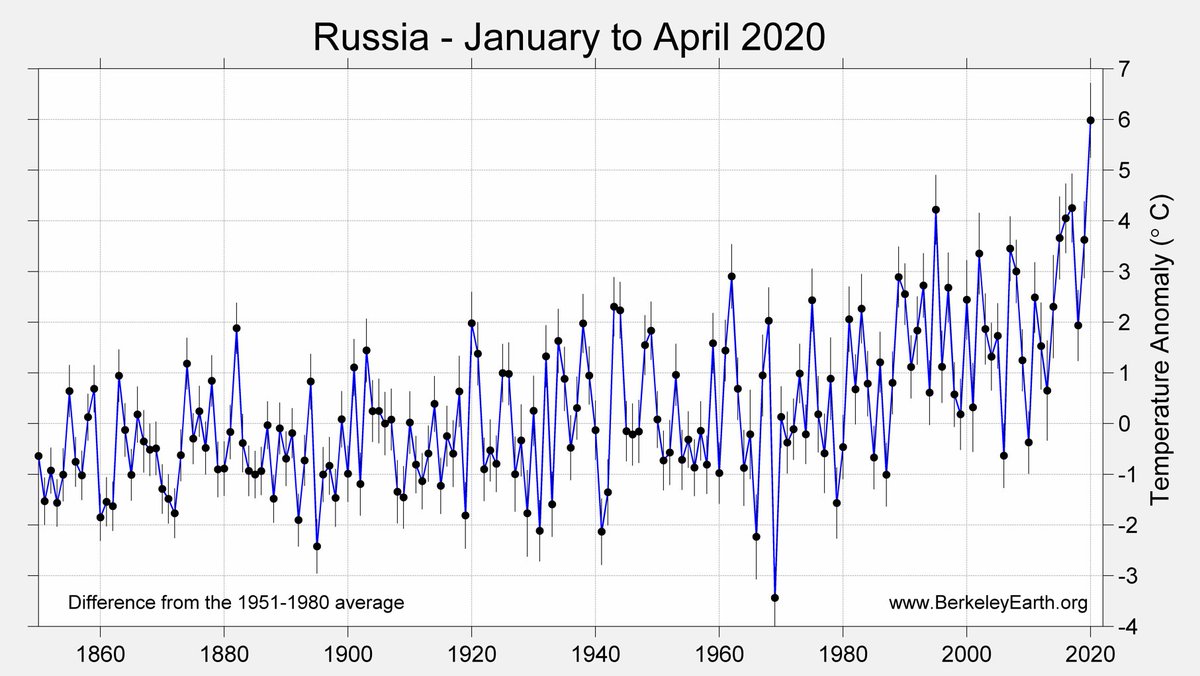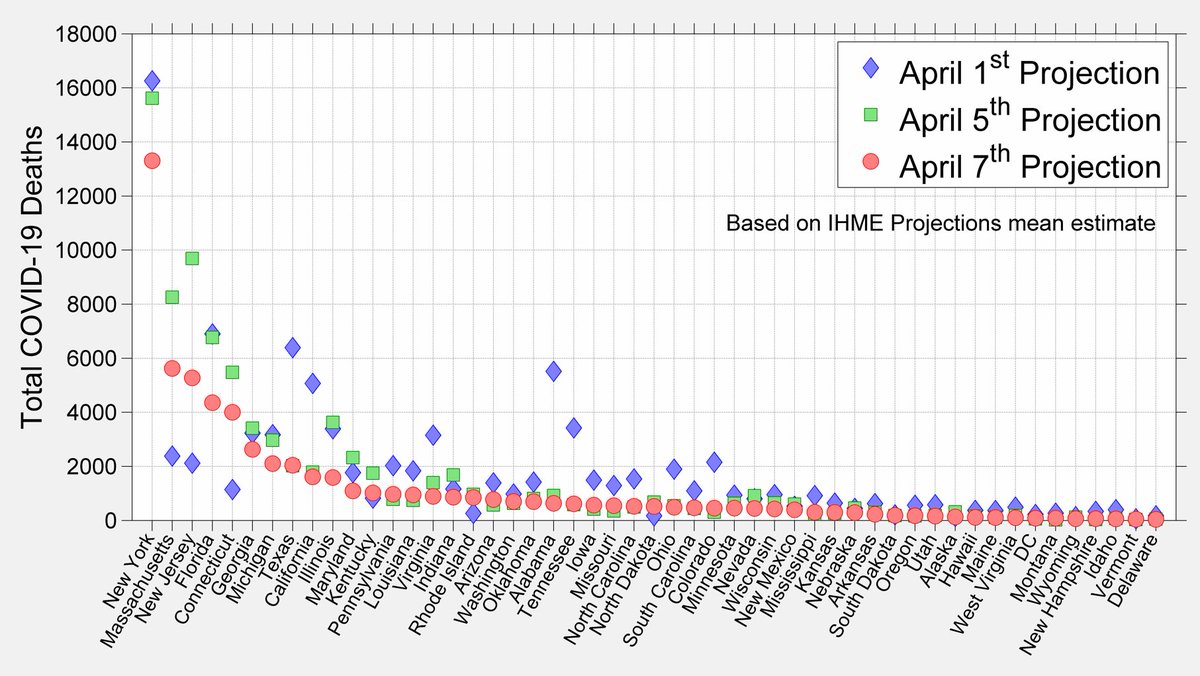
Data visualization of the changes in land use types over last 12,000 years according to a recent paper by @erleellis and colleagues:
pnas.org/content/118/17…
Human actions have been transforming the Earth's surface for thousands of years.
pnas.org/content/118/17…
Human actions have been transforming the Earth's surface for thousands of years.
A selection of time slices from the animation to further emphasize the shifts from uninhabited and sparsely inhabited land use type to more heavily populated and agricultural land uses. 







The authors of the paper (with @EarthOutreach) have previously provided an online mapping tool for exploring the changes over time on local and regional scales.
anthroecology.org/anthromes/12kd…
anthroecology.org/anthromes/12kd…

Lastly, I want to mention that @JacquelynGill, one of the coauthors of the paper cited above, wrote a Twitter thread discussing their results.
https://twitter.com/JacquelynGill/status/1384240351548829697
• • •
Missing some Tweet in this thread? You can try to
force a refresh








